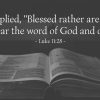Advertisement
Free Newsletters
Sign up now
Men dressed as the Three Kings greet spectators as they ride camels during the annual procession across the medieval Charles Bridge marking the feast of the Epiphany in Prague, Czech Republic, on Jan. 5, 2020. (CNS/Reuters/David Cerny)
by Todd C. Ream
View Author Profile
Send your thoughts to Letters to the Editor. Learn more
Beyond Scripture, few books demand we “take up and read.” Fr. Tomas Halik’s The Afternoon of Christianity: The Courage to Change, however, may just be one of those books.
The malaise of indifference permeating the post-secular age left the church to ponder its mission in the world. Ironically, an adversary in secularism once prompted the church’s clear and urgent, even if needlessly combative, message. No such counterpart now exists as even the once shrill voices of the New Atheism have fallen quiet.
With wisdom only few can summon, Halik calls the church to consider how the most faithful expression of its mission may be in its future. To that end, he contends:
I believe that the Christianity of tomorrow will be above all a community of a new hermeneutic, a new reading, a new and deeper interpretation of the two sources of divine revelation, scripture and tradition, and especially of God’s utterance in the signs of the times.
When heeding revelation and God’s utterance, Halik argues the church, as noted in the subtitle, must also summon the courage to change.
Part of Halik’s inspiration is the result of getting an early glimpse of what lay in secularism’s wake. A lifelong resident of Prague, Halik was ordained in a clandestine service in Erfurt because the specter of secular communism was slightly less ominous in East Germany than Czechoslovakia.
Initially, the Velvet Revolution invited optimism that a free people would repopulate the church in ways prior to the rise of the Iron Curtain. What Halik and his colleagues found was that people whose habits of faith were stripped from them were incapable of reflexively returning to the church. While still curious, a malaise of indifference became the spirit of the post-secular age.
Halik, a priest serving the Academic Parish of Prague and professor of sociology at Charles University, found he needed to reexamine threads of his own vocation. As exemplified by the biblical prophets, Halik found he was called to serve as a public theologian or as one who perceives “the changes in the world as God’s self-expression in history.”
As Christ’s body, Halik believes, the church is the only community that can, in fact, otherwise compel the curious yet indifferent.
Tweet this
In addition to Halik’s efforts as a priest and professor, the results of that reexamination are found in the pages of his 21 books in Czech, of which seven are now translated into English. In his first work translated into English, Patience with God: The Story of Zacchaeus Continuing in Us, Halik lobbies that the church is called to reach a generation metaphorically embodied by Zacchaeus — curious yet waiting from a safe distance, perhaps assuming their posture of indifference will persist unless surprisingly compelled otherwise.
As Christ’s body, Halik believes, the church is the only community that can, in fact, otherwise compel the curious yet indifferent. The Afternoon of Christianity then is “a book about faith as a journey in search of God in the midst of a changing world, about lived faith, the act of faith, how we believe (fides qua) rather than what we believe (fides quae), what is the ‘object’ of faith.”
Over the course of 16 interlocking chapters, what follows is Halik’s appraisal of how such a journey occurs. Risking oversimplification, that journey includes reexaminations of the nature of God, the nature of faith and the nature of the church. Along the way, Halik consulted an eclectic mix of voices including Pierre Teilhard de Chardin, Friedrich Nietzsche, Carl Jung, the Slovenian philosopher Slavoj Zizek and Pope Francis.
As noted, that journey begins with the nature of God. While the modern legacy of apologetics afforded the church some arguments worthy of God, it also left the church with some arguments defined by a logic that God could be known as could any other object. While such arguments reduce God to something other than God, they also elevate humanity to something other than beings created by God and in God’s image.
Advertisement
In contrast, Halik contends the curious yet indifferent amongst us are drawn to the mystery of an infinite God due to a keen awareness of our own finitude. The resulting process is “The Spirit of God leads the church ever deeper into the fullness of truth.” As a result, Halik asserts that indifference succumbs to compelling conviction when we “gratefully use all the instruments of knowledge that have been given us” and we still are left to “marvel at the immensity and depth of that which infinitely transcends [us].”
An understanding of God that leaves room for God to be God means faith not only acknowledges but also honors space for doubt. For Halik, “The doubt that is a healthy corollary to faith and makes it humble is not doubt about God, or doubt about whether God exists, but doubt about myself, about the extent to which as a believer I have properly understood what God is saying to me.” Such doubt acknowledges humans as finite and God as infinite. Such doubt also respects the questions which compel the Zaccheus in all of us to secure a safe distance to watch and wait for the coming of the savior.
In some ways, the church’s response to such understandings of God and faith is simply to continue to be the church, leaning fully into the grace present in the sacraments over which it presides. Halik points to perceptions of the church as “the people of God journeying through history,” “a school of Christian wisdom” and “a field hospital.” To these longstanding perceptions of the church, however, Halik adds “the idea of the Church as a place of encounter and conversation, a ministry of accompaniment and reconciliation.”
Drawing inspiration from Jung, Halík believes the afternoon of life and, in turn, of Christianity is “a time appropriate for the development of spiritual life, an opportunity to complete the lifelong process of maturing.” Perhaps the time has come for the church to take up and read. What awaits on the other side of doing so might just be a presence in the world worthy of the crucifixion Christ experienced and made the church’s very existence possible.
Advertisement
Advertisement
Advertisement
Advertisement
Select any of the newsletters below, then enter your email address and click “subscribe”
source














Post comments (0)